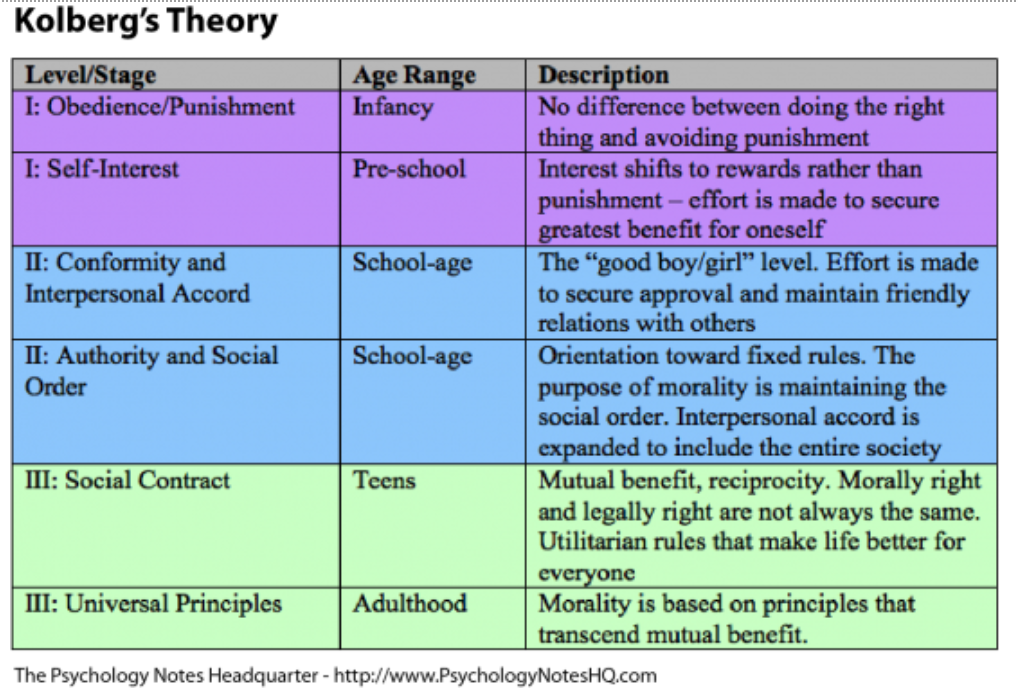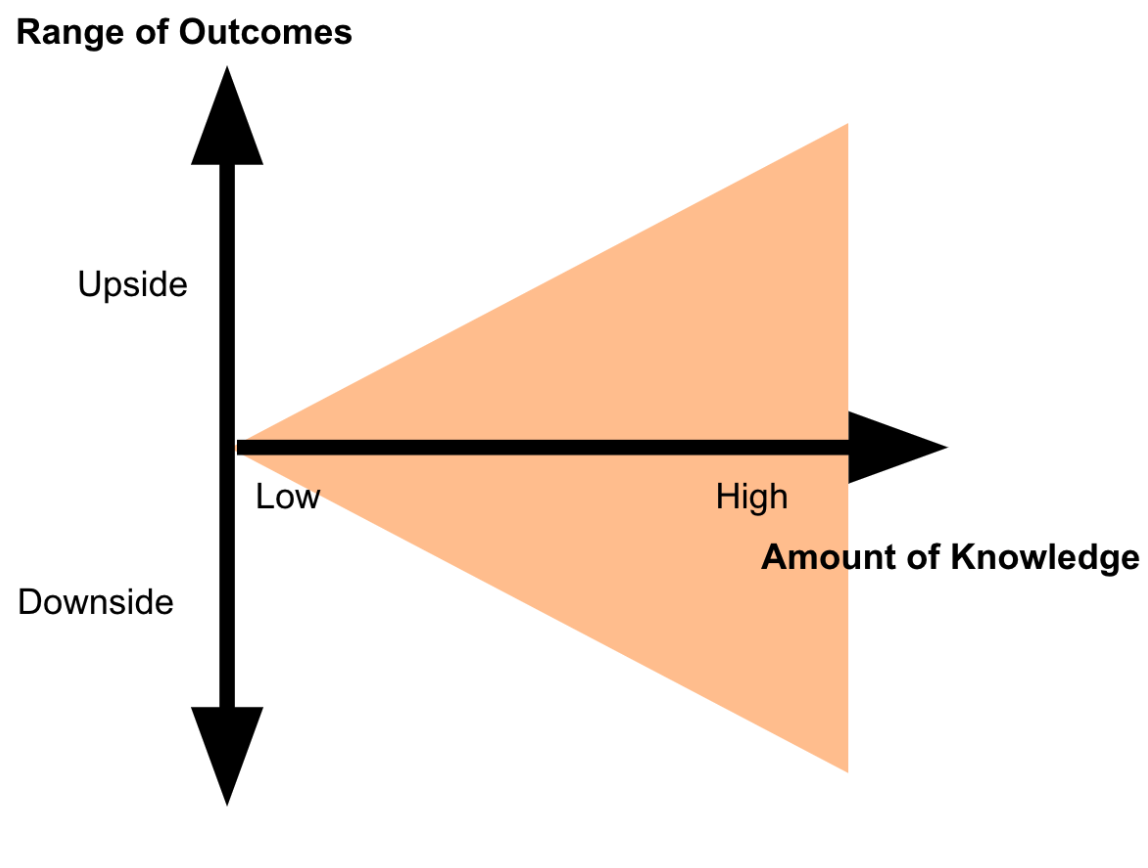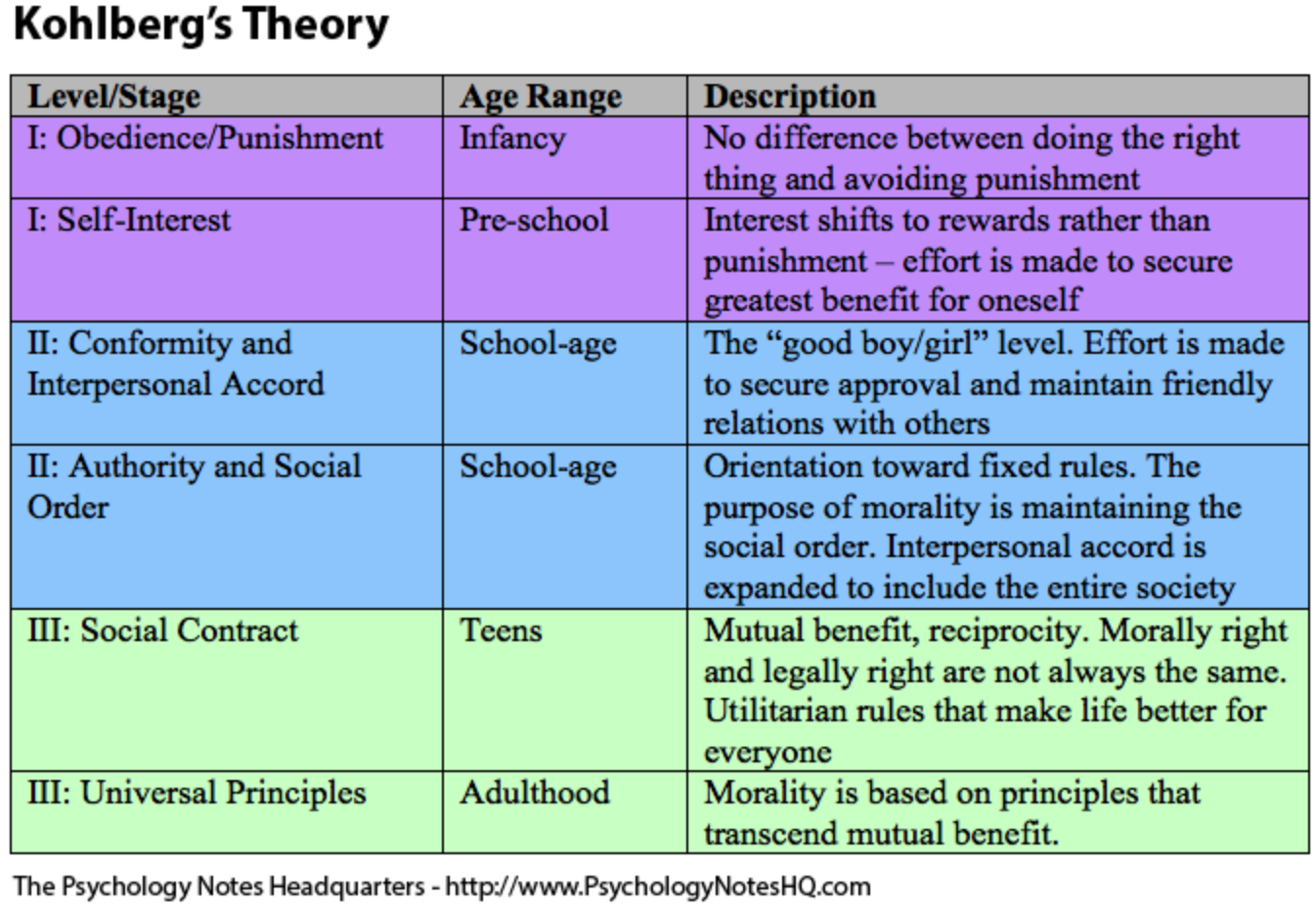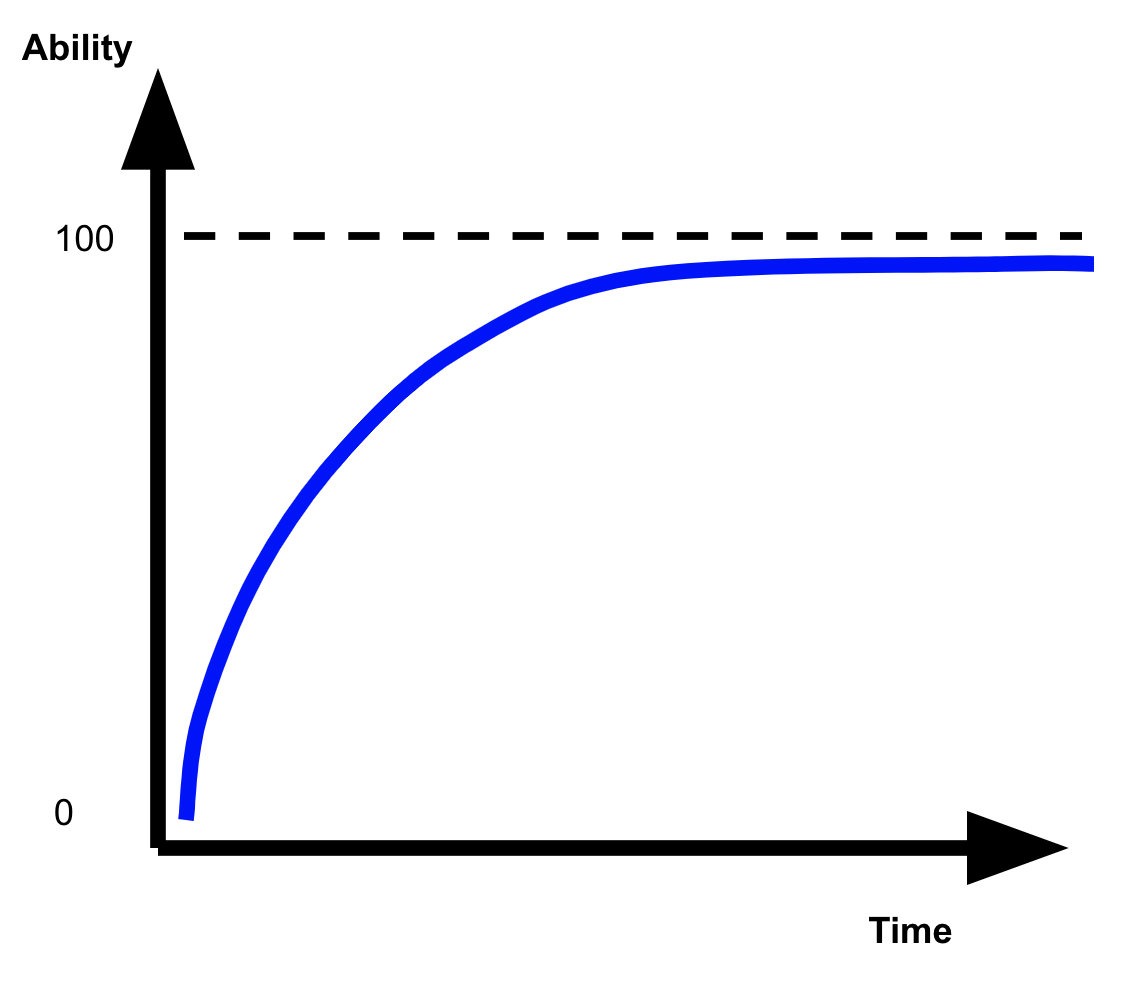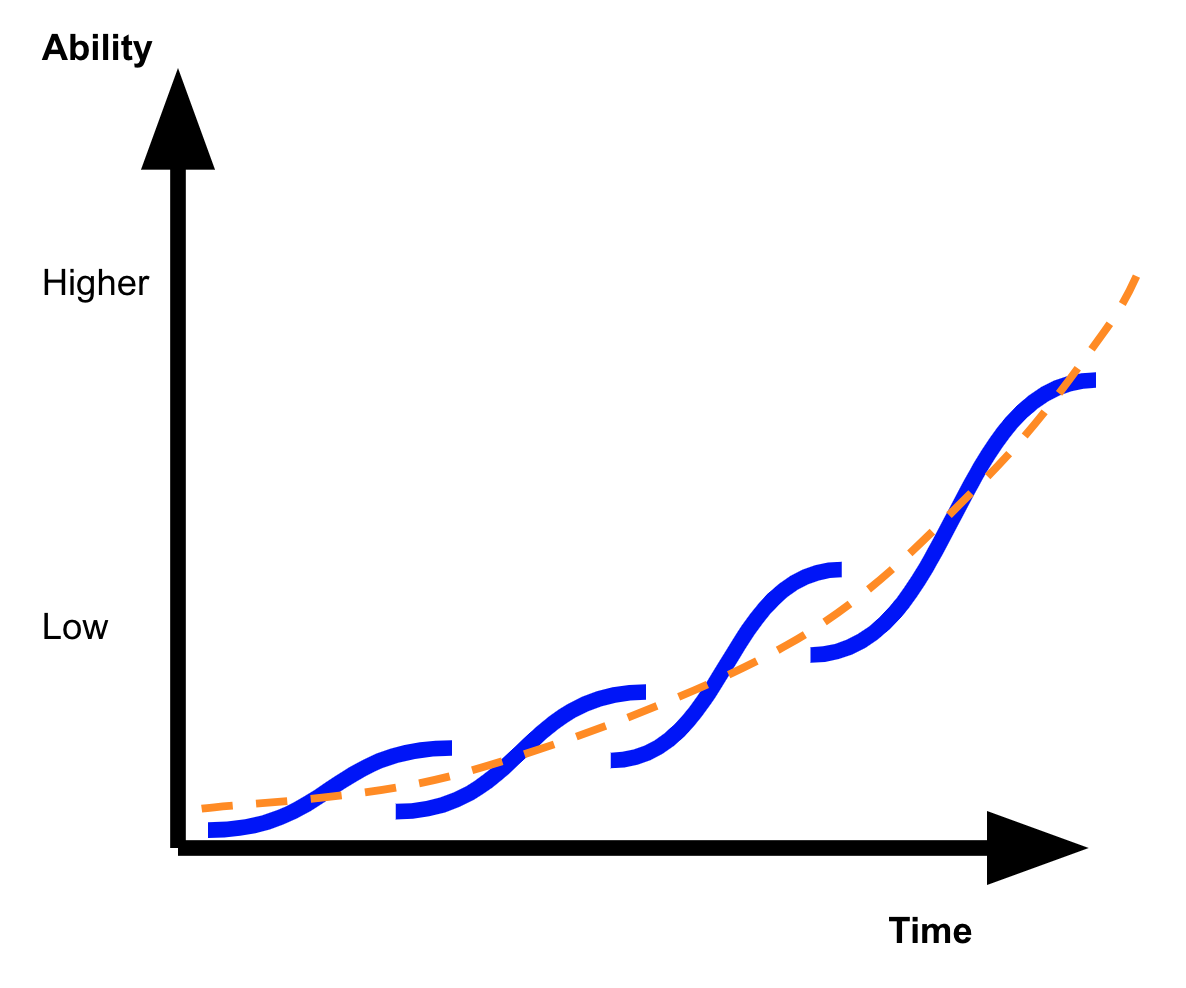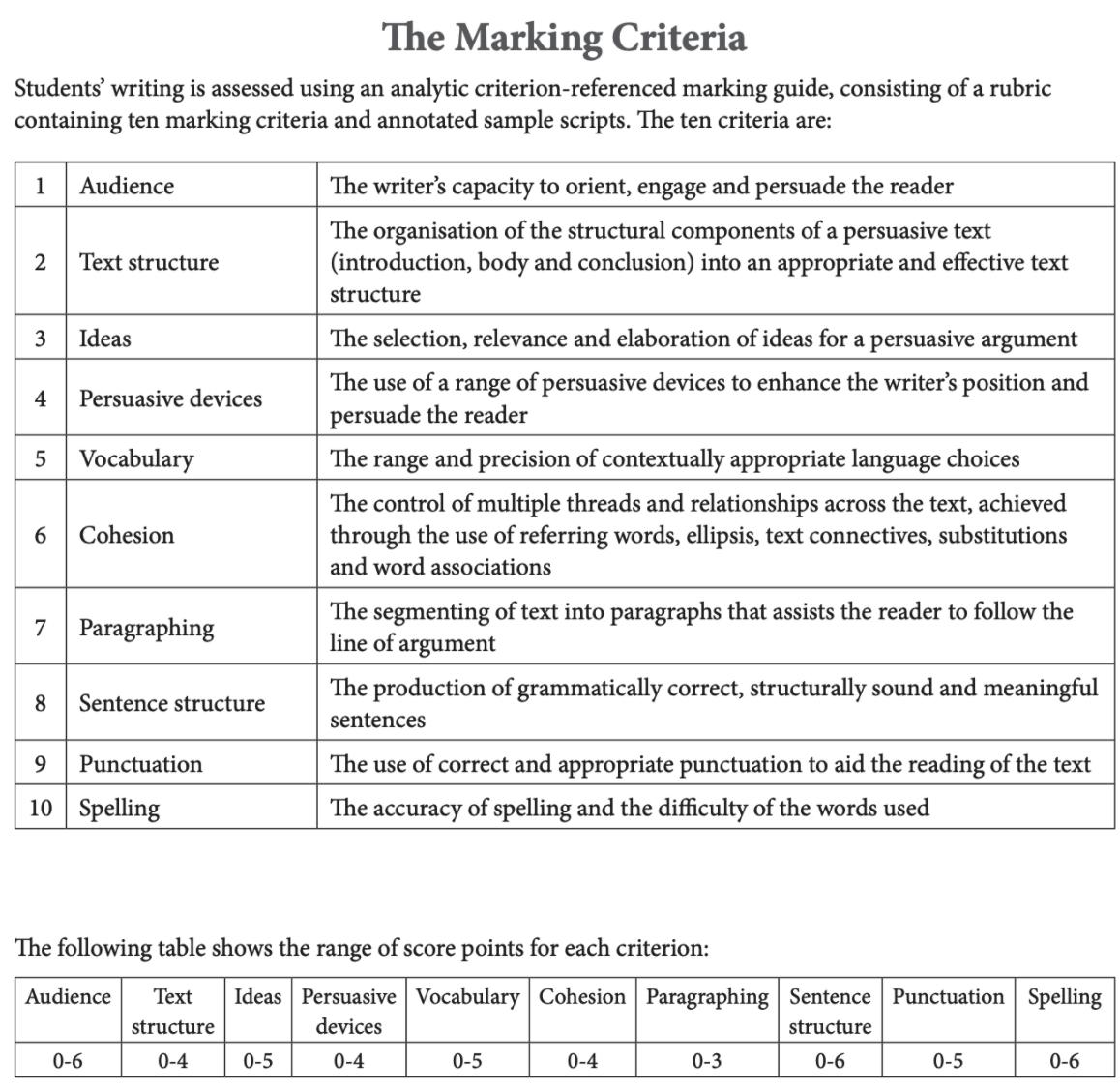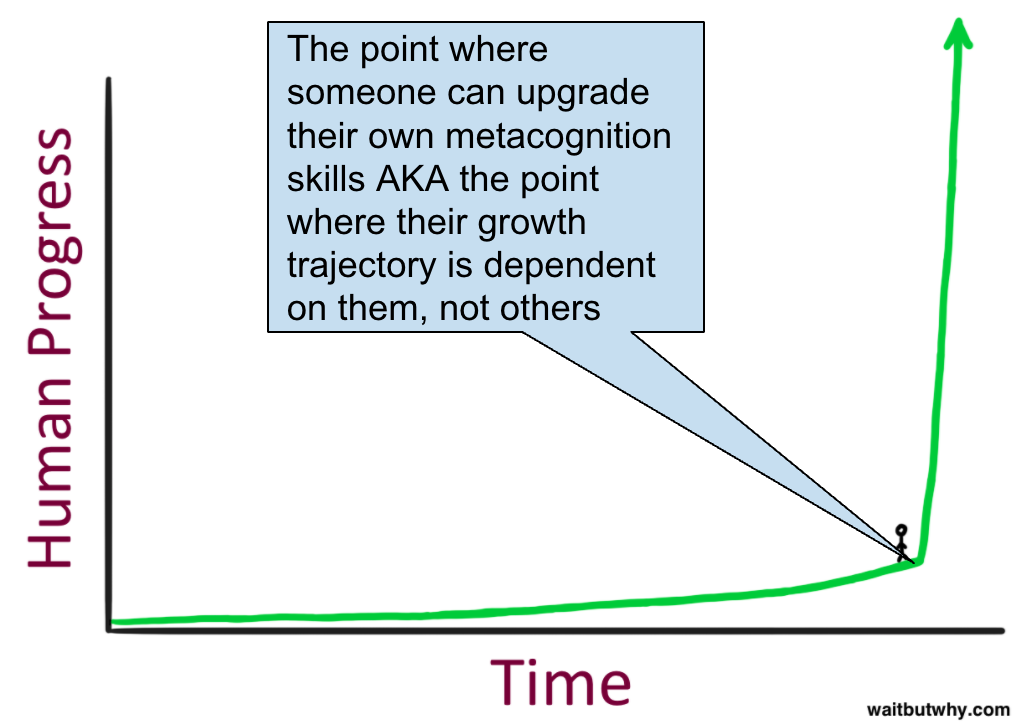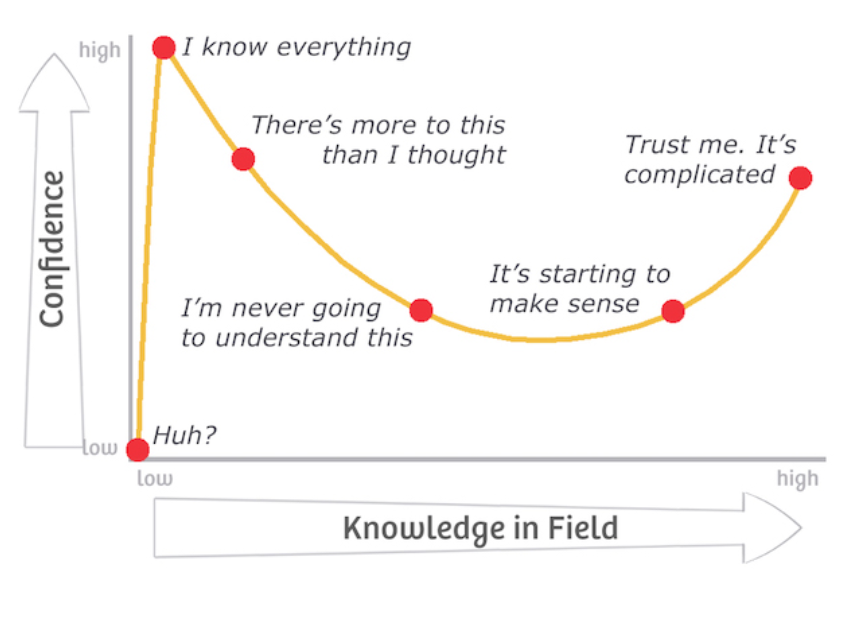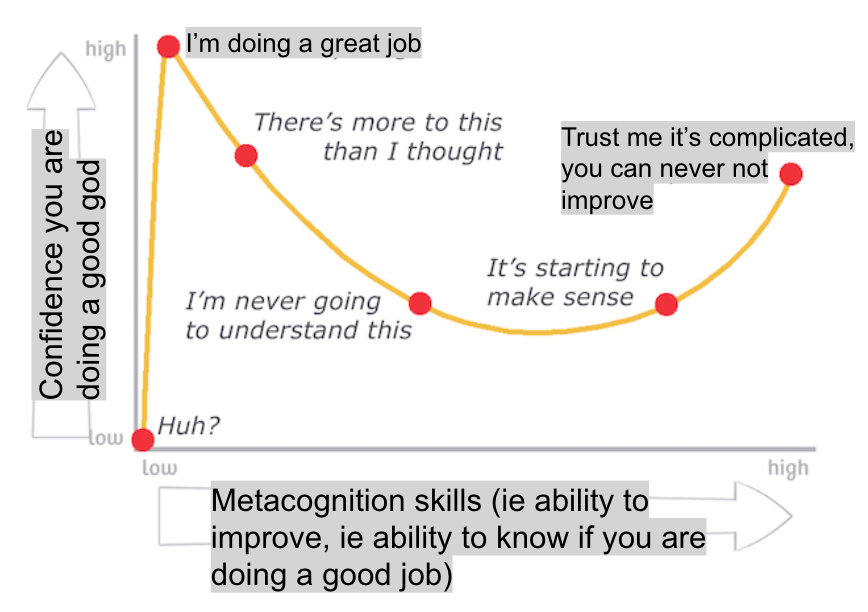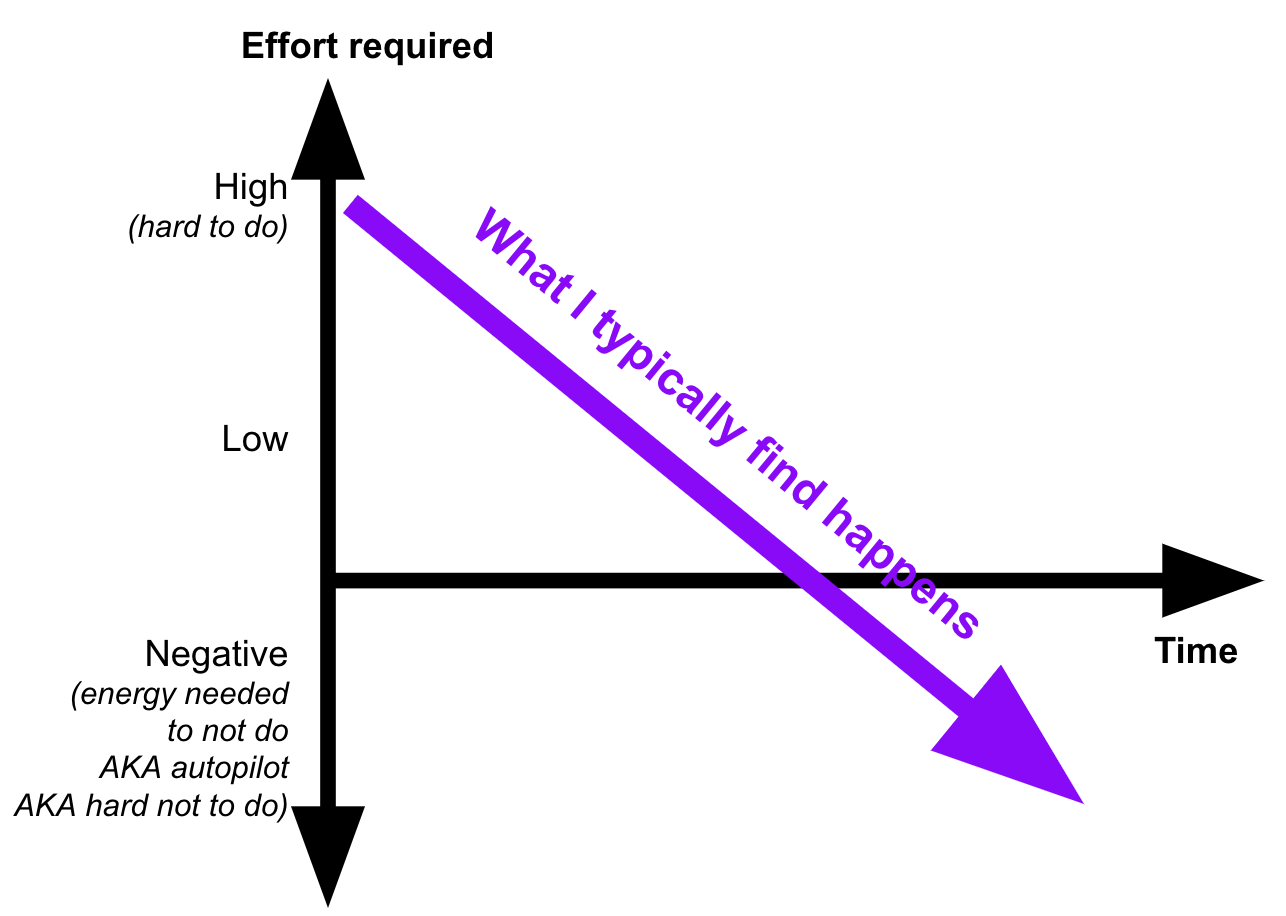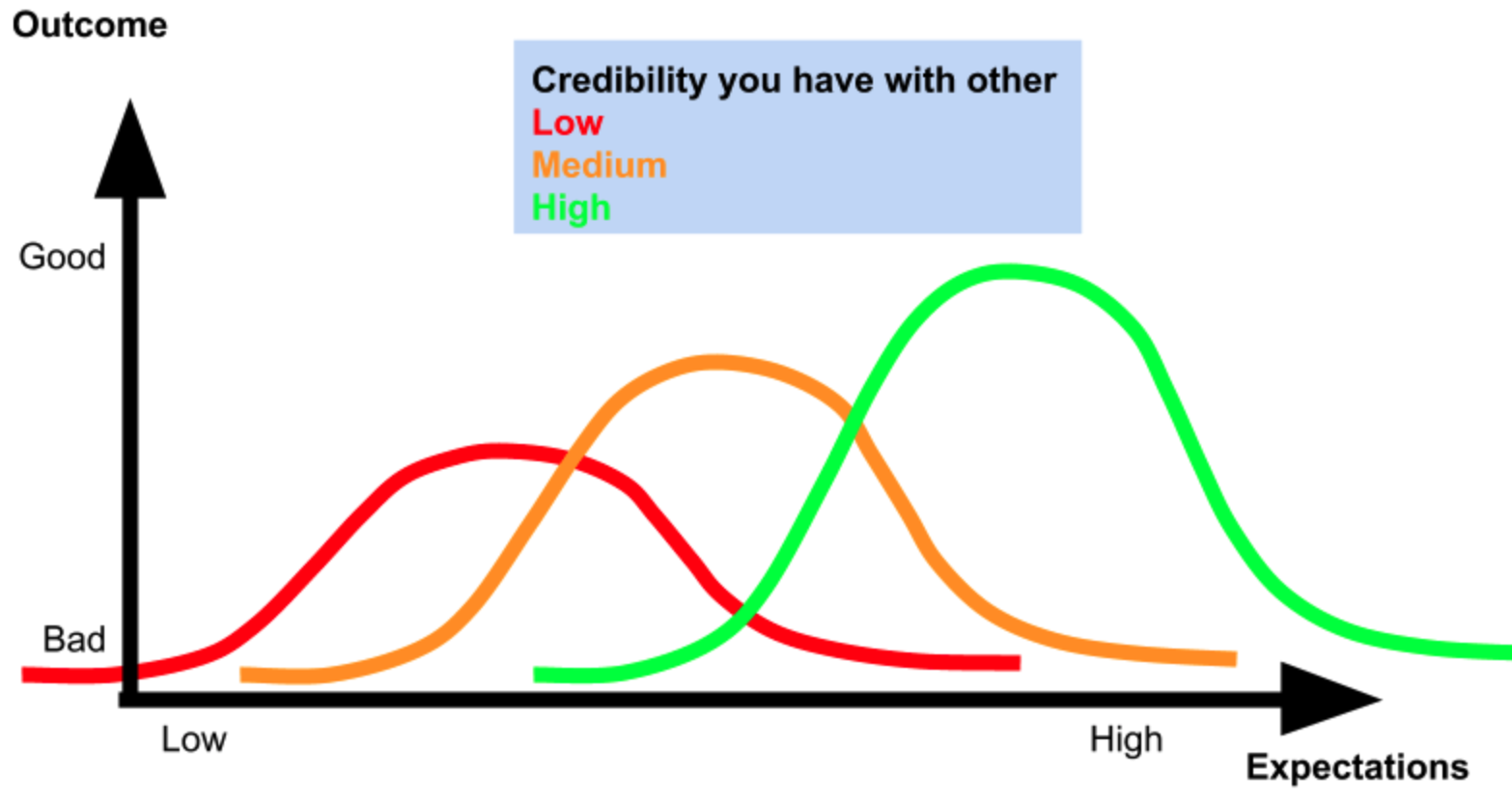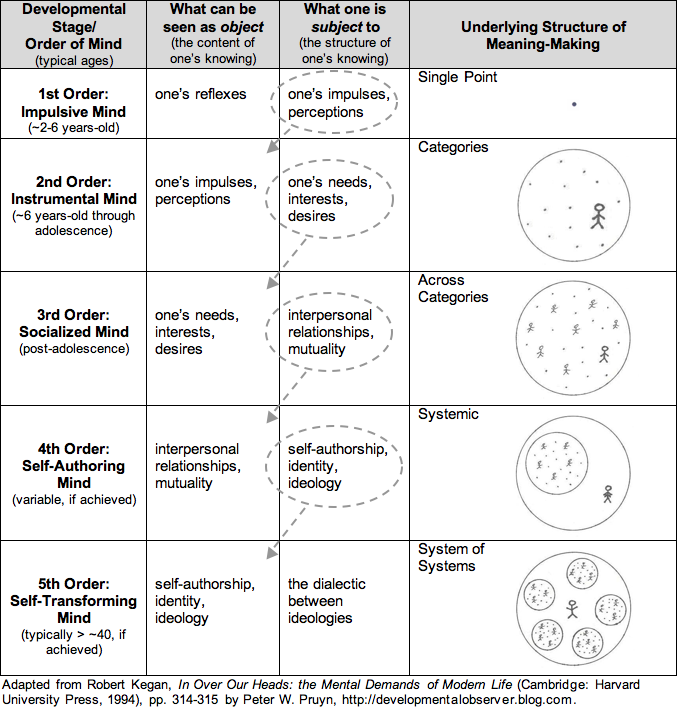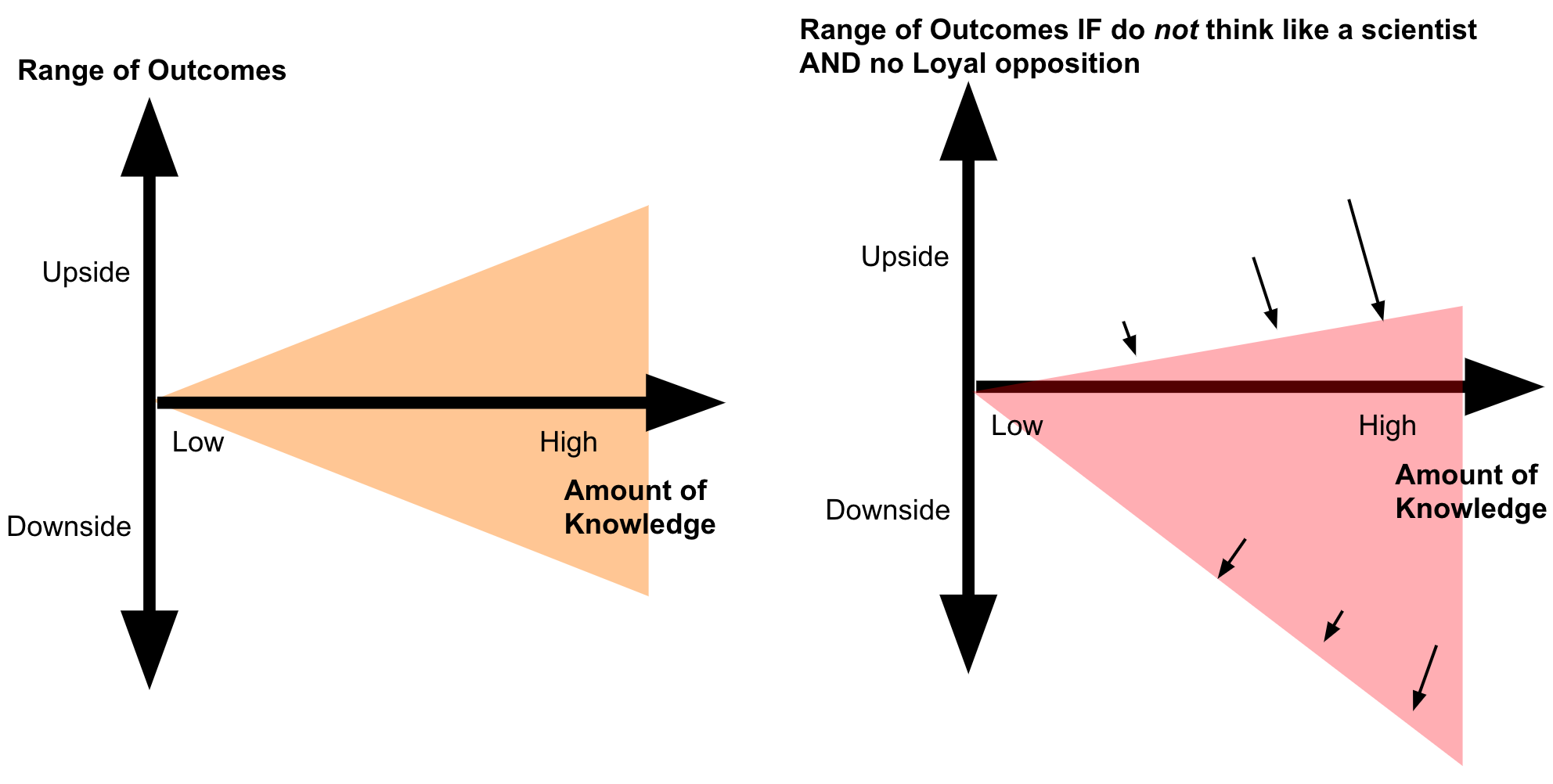1. Problem solving ability = 2. Generic problem solving ability * 3. Problem space knowledge
/By Duncan Anderson. To see all blogs click here.
Reading time: 8 mins (an extra 2 mins for the addendum)
Summary: 1. Problem Solving Ability = 2. Generic problem solving skills * 3. Industry specific knowledge
A human isn’t born able to walk or talk. Some go on to invent computer programs, build rockets that will go to mars and… most importantly invent wonderful coffee subscriptions that arrive weekly :).
I believe humans can systematically build “1. Problem Solving Ability” and become orders of magnitude better than they are today. I believe that I’m orders of magnitude better at building secondary school education resources than I was 7 years ago.
However, IMO being good at problem solving in one area doesn’t mean one is good at problem solving in all areas. IMO without industry specific knowledge it’s very difficult to add any value to that industry.
For reference I think I’m good at problem solving in some areas and useless in other areas. I think eg Elon Musk is epic at problem solving in some areas but useless in other areas… and that everyone starts life useless in all areas.
Jingle: to be industrious (inventive / solve problems) first you must have industry specific knowledge.
Your body is limited, your mind is limitless.
IMO what your mind can learn is a function of what you already know. Ie the more you know the more you can learn.
IMO what your mind can do is a function of what you have done. Ie the more you have done the more you can do.
See this blog and this blog. IMO effectively your mind can compound exponentially abilities, your body asymptotes abilities.
Body
Mind
How to model the mechanism that gives rise to compounding of your problem solving ability
1. Problem Solving Ability = 2. Generic problem solving skills * 3. Industry specific knowledge
2. Generic problem solving skills
Novice = 0x [hours needed 0]
Competent = 1x [hours needed 10s]
Proficient = 10x [hours needed 100s]
Expert = 100x [hours needed 1,000s]
Master = 1,000x [hours needed 10,000s]
3. Industry specific knowledge
Novice = 0x
Competent = 1x
Proficient = 10x
Expert = 100x
Master = 1,000x
Visualisation
Example - DA (myself, my initials are DA)
DA on secondary education
I have basically no idea about AFL. If someone asked me to help an AFL team I’d have no idea what to do.
I have basically no idea about how to run a high end restaurant (I know how to eat at one but that isn’t the same :) ). If someone asked me to help a high end restaurant I’d have no idea what to do.
I had almost no knowledge of the Secondary Education resource industry when we started Edrolo 7.5 years ago (so very limited ability to help) but since then I’ve been slowly systematically acquiring knowledge and so IMO my ability to help has been increasing.
Visualization - How does my ability to add value to secondary education look in my model?
Timeline - DA’s Problem solving ability
Disclaimer: The point of this model is to try show where I think I am vs the baseline of having no problem solving ability, directionality is important not the numbers
DA at Birth (0x)
“1. Problem Solving Ability” for Secondary Education or anything for that matter ≈ 0x
I couldn’t walk or talk let alone know what a book was or maths or anything.
At birth I didn’t know sh1t. Pretty much all I could do was sh1t (my nappie)
DA 5 years ago on Secondary Education (10x)
“1. Problem Solving Ability” for Secondary Education ≈ 10x
I had decent problem solving ability but had done very minimal upgrading in education so I simply couldn’t get much higher in secondary education
DA Problem solving ability today
AFL (0x)
Despite that I believe I have strong generic problem solving skills, I have zero knowledge about AFL. If I was asked to help an AFL team right now I think I'd be next to useless. For me to help would require learning a lot about AFL.
Secondary Education (10,000 - 100,000x)
In the last 5 years I have systematically upgraded my problem solving ability but most importantly I have upgraded my knowledge of Industry knowledge in secondary education through at least 5,000 hrs reading, thinking, talking, writing and building
This is taken me to expert/master in both my generic problem solving skills and my industry knowledge
Primary Education (500 - 5,000x)
IMO some but not all of my secondary education knowledge is applicable to primary education (but almost none of my secondary school knowledge is applicable to AFL) so I think I’d likely be able to add value right now in primary education resources.
DA goal for 5 years in the future for Education (10,000,000x +)
In 5 years I’d hope to be 1,000x better than I am today for secondary education solutions. In the coming 5 years I hope to do another 5,000+ hours of secondary education knowledge acquisition and another 5,000+ hours of generic problem solving ability improvement.
Deepdive on my problem solving ability in secondary education today (10,000 - 100,000x)
So is it possible I’m IMO 1,000 - 5,000x better at Secondary School resource solutions than 5 years ago?!? At first I thought this number was totally ridiculous, how could it be possible to be this much better? Then I thought about the first textbook we made at Edrolo... I’m proud of everything we have made… but IMO everything you do should be the best thing you have done. IMO what we do today is like a Tesla vs a horse (5 years ago). Both will get you from Point A to Point B… that is about all they have in common.
For the first textbook at Edrolo ~5 years ago it took me 3 days to make the ‘recipe’ and that was putting every idea I had in the one book. After 3 days I was out of ideas.
For the current book we’ve been working on the recipe for 12 months and each time we work on the recipe we get more new ideas. Ie working on the recipe is 1. Adding new ideas to the product and 2. Have more new ideas. Basically I don’t think we’ll ever run out of ideas now!
2. Generic problem solving skills
I’d say 5 years ago I was ‘Proficient’.
And honestly I think I have spent close to 10,000 hours doing problem solving in the last 5 years. As an example IMO this blog is one example of problem solving.
I’d say my generic problem solving skills are 10-100x better than before.
On a sad note: I’d say that by the end of secondary school my hours ‘problem solving’ in school would have been <100 hours. IMO this is sub-optimal, I hope edrolo can do something about increasing the number of hours on problem solving in secondary education.
3. Industry specific knowledge:
Five years ago I’d maybe barely done 10s of hours of learning about the secondary school education space. I’ve done minimum 5,000hrs in the last 5 years. That’s 20x hours each week for those wanting to count. I’d say 50% of this time is reading and 50% is talking, thinking, writing & building.
To say I know more about the secondary education space is putting it mildly. I feel like in hindsight I knew nothing 5 years ago.
So I believe I’ve gone from ‘competent’ 5 years ago to ‘expert’ now. I don’t ever plan to stop learning about education. Honestly I think it would be nice if I had spent more time learning about education by the time I was 80 than any other human ever. This sounds to me like a life well spent! Educating myself about education!
Example - Elon Musk
Firstly I’m creating another category beyond ‘Master’ for “2. Generic problem solving skills” that Elon inhabits called…. ‘Game Changer’.
IMO Elon is likely the best ‘physics based’ entrepreneur ever. I’d say that Steve Jobs was the best ‘user experience’ based entrepreneur ever.
I think Elon is one of the hardest and smartest working humans ever. IMO Elon ain’t perfect, but fark are his strengths strong!
Visualization
Timeline - Elon Musk’s problem solving
Elon 20 years ago
Rockets “1. Problem Solving Ability” ≈ 1x.
Elon was trying to buy and repurpose Intercontinental Ballistic Missiles from Russia.
Elon 10 years ago
Rockets “1. Problem Solving Ability” ≈ 10,000x.
Elon had successfully launched rockets to orbit. While awesome others like NASA had done this before.
Elon today
Rockets “1. Problem Solving Ability” ≈ 10,000,000x.
Elon landed a rocket vertically for the first time in human history, a major breakthrough for the feasibility of space travel.
Elon is sending humans into space and much more. SpaceX (Elon’s rocket company) is doing things no one else has done before. SpaceX has hit… liftoff?
While I think that Elon is the best physics based entrepreneur ever… as far as I know Elon doesn’t know anything about AFL. If he was to be an AFL team coach right now I think he’d be pretty useless.
If I, DA, was to be made SpaceX CEO I’d be pretty useless right now. But I also think that right now I could help make a better secondary school resource than Elon musk. While I think Elon has better “2. Generic problem solving skills” than I do, I think I have way more “3. Industry specific knowledge” about secondary education than Elon does so this would overcome my “2. Generic problem solving skills” disadvantage.
----------------------------------------------
Addendum
Thoughts on how to improve “2. Generic problem solving skills” and “3. Industry specific knowledge”
I’m trying to make these blogs shorter, so I’ll do a deeper dive on these areas in the future!
One lens for “2. Generic problem solving skills” and “3. Industry specific knowledge” modalities I talk to:
Reading, thinking, talking, writing and building.
While I think that any modality can be used to build abilities in anything, I the following is a reasonable approximation:
IMO the most valuable modality is ‘writing’. A blog like this is ‘writing’.
‘Writing’ vs ‘Building’
Building = making a lesson for a textbook
Writing = writing about making a lesson for a textbook (metacognition)
Comment:
I didn’t like English at school and I wasn’t good at it (if that isn’t a reflexive relationship then I don’t know what is).
I now LOVE writing and to me writing and english essays have almost nothing to do with writing a blog like this!
If you want an idea of an average week for me:
Reading = 40-60 hours of 1x human speed reading (most of my reading = listening and is done at 5x)
Thinking = 1-5 hours a week
Talking = 5-20 hours of meetings a week
Writing = 5,000 - 20,000 words a week. This is the key change for me vs 5 years ago. 5 years ago I wrote more like 5,000 - 20,000 words every 6 months, not every week.
Building = 1 - 20 hours a week.
IMO the most important thing I do to add value to Edrolo is ‘writing’.
Honestly I cannot recommend writing highly enough.
Writing = problem solving
Writing = thinking
Writing = great great fun!
If you only take away one thing
IMO problem solving is fun. IMO no one starts with any problem solving skills. IMO one can systematically build problem solving skills. IMO to be great at problem solving you need to upgrade your industry knowledge and your generic problem solving ability.











